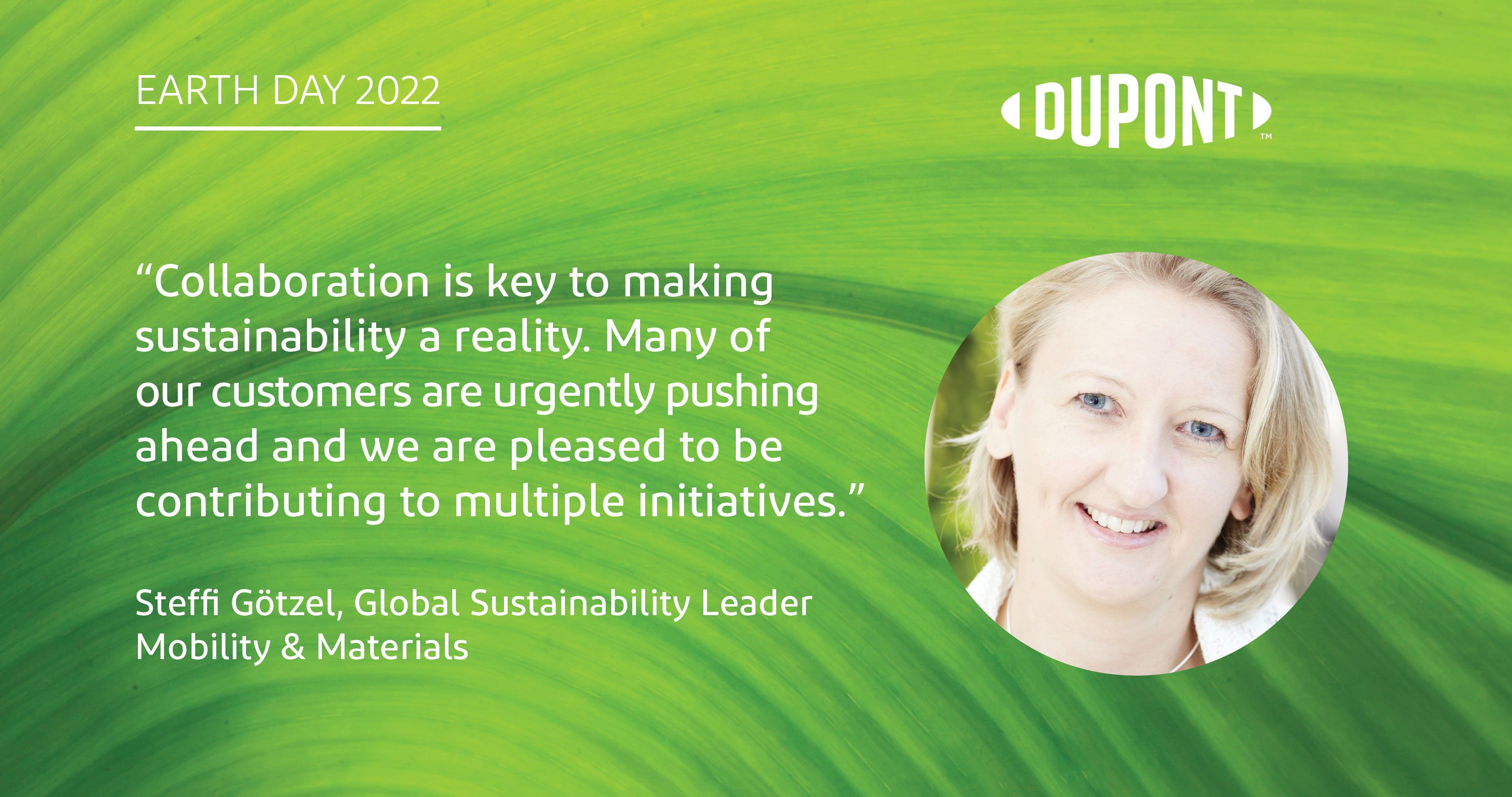Investing Together for a Better, More Sustainable Future
Article

Earth Day is here to remind us that we need to invest in our planet by acting boldly, innovating broadly, and implementing equitably. Climate change is the most pressing threat to humanity. We can no longer afford to ignore this planetary emergency. We need to work together toward a more sustainable world.
At DuPont, our purpose is to empower the world with essential innovations to thrive. Taking a customer-centric approach to sustainability, we work on solutions that create value for our customers and help transform industries and markets toward a low-carbon and circular future.
Delivering solutions to global challenges like climate-friendly mobility
According to the World Resources Institute, 24% of global CO2 emissions is attributed to transportation, of which nearly half are light-duty passenger vehicles1. The shift to electromobility is critical for achieving global climate targets.
Today, plastics are integral to automotive design. They not only deliver lasting performance and innovative design, but also make cars safer and lighter. In addition, DuPont Mobility & Materials provides solutions that enable vehicle electrification including thermal management, battery assembly, and enhanced connectivity. For example, Hytrel® materials have the resistance, stability, conductivity, and tolerance to benefit the subsystems of fuel cell EVs.
We collaborate with automotive manufacturers to help design vehicles that reduce environmental impacts and improve product lifecycle efficiencies meeting each customer’s individual needs.
CO2 reduction along the value chain
At the same time, we are focused on reducing the environmental footprint of our own operations by improving manufacturing processes for energy efficiency and switching to electricity from renewable sources to become carbon neutral by 2050 at the latest. In fact, our team at Washington Works in Parkersburg, West Virginia, US, just won their third consecutive American Chemistry Council Responsible Care® Energy Efficiency Award for operational improvements.
Another priority is to intensify the collaboration with our suppliers to reduce the CO2 footprint of our raw materials. They are critical to the footprint of our products and to accelerating the path to low-carbon solutions for our customers.
Driving towards a circular economy
Plastics are valuable materials and an integral part of our life. But they come with some environmental challenges. They are mainly fossil-based and often end up in landfills. Thus, we need to re-think how plastics are made, used, and especially how they can be recycled. The adoption of circular economy approaches drives reduction in waste disposal and in GHG emissions.
Circularity is an increasing focus in our product development. We aim to extend our portfolio of products incorporating bio-based and/or recycled materials. Our Delrin® Renewable Attributed (with the base polymer using 100% bio-feedstock from waste according to ISCC mass balance certification and manufactured with 100% certified renewable electricity) has received recognition from R&D 100 for its performance and sustainable benefits. And that's just the beginning...
Likewise, we integrate circular thinking into our operations and have committed to Operation Clean Sweep® Blue.
Finally, value chain partnerships, like those with salvage yards and recyclers, help us explore reuse and a second life for our materials at the end of life. We also engage in cross-industry initiatives like the WEF/WBCSD Circular Cars initiative.
The time is now: Everyone accounted for, everyone accountable
The next five to 10 years are a critical window for action. But global issues like climate change cannot be solved by one person or one company alone. Collaboration is key to making sustainability a reality. Many of our customers, like the automotive manufacturers, are urgently pushing ahead. We are pleased to be contributing to many of these initiatives. We have everything to gain as we transition to a low carbon, circular future.
Footnote: 1 Everything You Need to Know About the Fastest-Growing Source of Global Emissions: Transport | World Resources Institute (wri.org)
